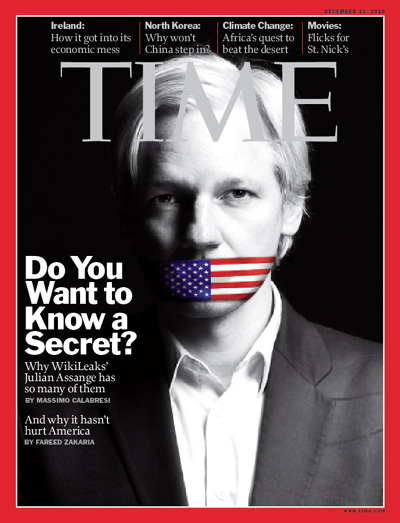 RAW STORY: “We do think people should be able to make their own decisions as to who they donate to,” Xipwire co-founder Sibyl Lindsay told Raw Story during a Tuesday afternoon telephone interview. “The fact that people can’t donate to where they’d like to and make that decision for themselves does bother us.” The company has set up a page where WikiLeaks supporters can donate, saying it will waive all related fees. “Our motivation is really simple,” Xipwire founder Sharif Aleandre explained in an email. “While people may or may not agree with WikiLeaks and the documents it has released, we feel that PayPal’s recent decision to refuse to process donations on their behalf effectively silences voices in this democracy. In fact, it was the Citizens United case that basically equated donations with free speech and if the Supreme Court decided that our government doesn’t have the power to regulate that speech then it’s our opinion that corporations certainly shouldn’t have that power either.” MORE
RAW STORY: “We do think people should be able to make their own decisions as to who they donate to,” Xipwire co-founder Sibyl Lindsay told Raw Story during a Tuesday afternoon telephone interview. “The fact that people can’t donate to where they’d like to and make that decision for themselves does bother us.” The company has set up a page where WikiLeaks supporters can donate, saying it will waive all related fees. “Our motivation is really simple,” Xipwire founder Sharif Aleandre explained in an email. “While people may or may not agree with WikiLeaks and the documents it has released, we feel that PayPal’s recent decision to refuse to process donations on their behalf effectively silences voices in this democracy. In fact, it was the Citizens United case that basically equated donations with free speech and if the Supreme Court decided that our government doesn’t have the power to regulate that speech then it’s our opinion that corporations certainly shouldn’t have that power either.” MORE
WIKIPEDIA: In December 2010, the whistle-blowing website WikiLeaks came under intense pressure to stop publishing secret United States diplomatic cables. Corporations such as Amazon, PayPal, Swiss Postal Finance, MasterCard and Visa either stopped their dealings with or froze donations to Wikileaks, some because of political pressure. In response, Operation Payback directed their activities against these companies for dropping Wikileaks. The group launched DDoS attacks against PayPal, the Swiss bank PostFinance, and the Swedish Government site (Åklagarmyndigheten=Swedish Prosecution Authority), in retaliation for coming down on WikiLeaks.[54][55][56] On the 8th of December 2010, a coordinated DDoS attack by Operation Payback brought down the Mastercard.com website. MORE
MASTERCARD: Please be advised that MasterCard SecureCode Support has detected a service disruption to the MasterCard Directory Server. The Directory Server service has been failed over to a secondary site however customers may still be experiencing intermittent connectivity issues. MORE
NEW YORK TIMES: Luke Harding, the Moscow correspondent for The Guardian, reports that a new leaked cable deals with United States government support for MasterCard and Visa in Russia. Mr. Harding writes:
The U.S. lobbied Russia this year on behalf of Visa and MasterCard in an attempt to ensure the payment companies were not “adversely affected” by new legislation, according to American diplomats in Moscow.
A State Department cable released this afternoon by WikiLeaks reveals that U.S. diplomats intervened to try to amend a draft law going through Russia’s Duma. Their explicit aim was to ensure the new law did not “disadvantage” the two U.S. firms, the cable states. MORE
COMPUTERWORLD: Close to 1000 mirror sites serving up WikiLeaks content have popped up around the globe over the last few days. “Within a couple days, the WikiLeaks web content has been spread across enough independent parts of the Internet’s DNS and routing space that they are, for all intents and purposes, now immune to takedown by any single legal authority,” said James Cowie, chief technology officer at Renesys, an Internet monitoring firm. “If pressure were applied, one imagines that the geographic diversity would simply double, and double again.” In an interview with Computerworld, Cowie added that even if WikiLeaks were taken down completely “bits and pieces of its content will probably be mirrored for ever,” on the Internet, he said. MORE
